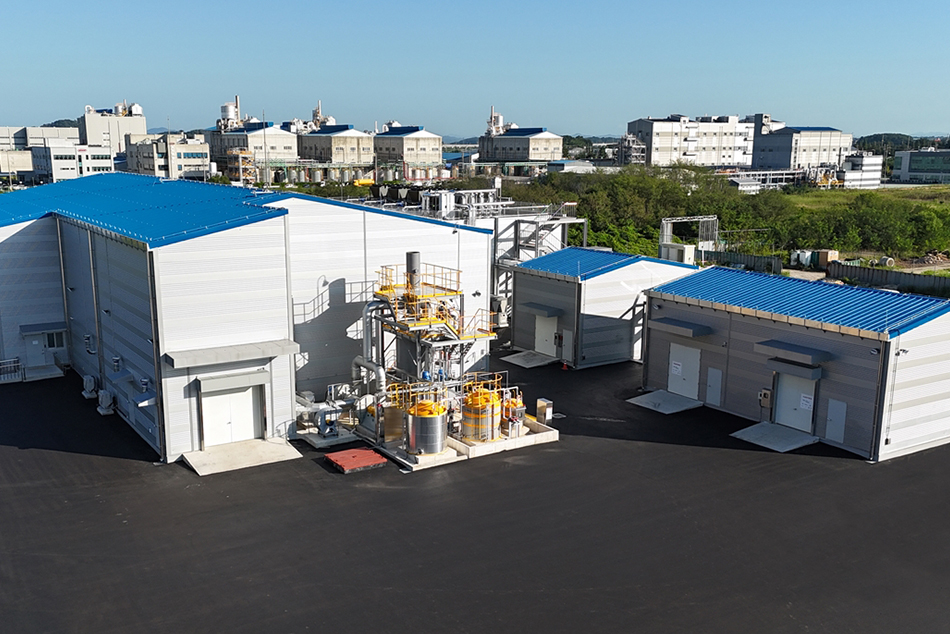LOTTE Energy Materials (Seoul, South Korea) is set to commence full-scale sales of key materials for next-generation all-solid-state batteries with the completion of a pilot plant for sulfide-based solid electrolytes.
LOTTE Energy Materials has invested 15 billion KRW (around $11 million) to complete a pilot plant for the production of sulfide-based solid electrolytes, a key material for next-generation all-solid-state batteries, at its Iksan Plant 2 in Jeonbuk.
The pilot plant, utilizing a site of 1,619 square meters, has an annual production capacity of 70 tons of solid electrolytes. It plans to start trial operations at the end of September, once regulatory approvals are finalized, and aims to produce initial samples by the end of the year.

LOTTE Energy Materials has completed a pilot plant for sulfide-based solid electrolytes at its Iksan Plant 2 in Jeonbuk (Source: LOTTE)
The sulfide-based solid electrolyte developed by LOTTE Energy Materials boasts distinct technological advantages, including high ionic conductivity particle size control technology, moisture stability and high ionic conductivity composition, and the ability to develop various mass production processes using both dry and wet synthesis methods.
Firstly, the high ionic conductivity particle size control technology allows for fast and efficient charging and discharging of the battery by controlling the size and distribution of solid electrolyte particles. Additionally, the moisture stability composition ensures that the chemical structure and performance of the sulfide-based solid electrolyte remain intact even when exposed to moisture, overcoming the drawback of reduced battery performance or shortened lifespan. Furthermore, the high ionic conductivity composition facilitates the rapid and efficient movement of lithium ions within the solid electrolyte, thereby enhancing the charging and discharging speed of the battery.
The synthesis technology of sulfide-based solid electrolytes significantly impacts battery performance and production costs. By developing various mass production processes, including dry and wet synthesis, LOTTE Energy Materials can achieve large-scale battery production and cost reduction.
LOTTE Energy Materials plans to provide evaluation samples to domestic and international all-solid-state battery companies after trial operations and stabilization phases by the end of this year. If final approvals and product supply contracts with customers are secured by 2025, the company aims to expand production facilities to an annual capacity of 1,200 tons starting in 2026, with full-scale mass production commencing in 2027. The strategy includes offering a total solution for all-solid-state materials by integrating the domestically first-developed ‘nickel-plated foil.’
The custom-developed nickel-plated foil by LOTTE Energy Materials can adjust the nickel thickness and copper foil strength according to customer requirements. Its strengths include high corrosion resistance, maintaining its original properties and functions without corrosion or discoloration due to chemical reactions, and strong adhesion to active materials through nickel surface treatment.
Kim Yeon-seop, CEO of LOTTE Energy Materials, stated, ‘We are ready to begin full-scale production of the sulfide-based solid electrolyte, which received positive evaluations from customers during the research phase. Along with the nickel-plated foil, a next-generation battery anode current collector, we will lead the all-solid-state battery material market through customer sales.’